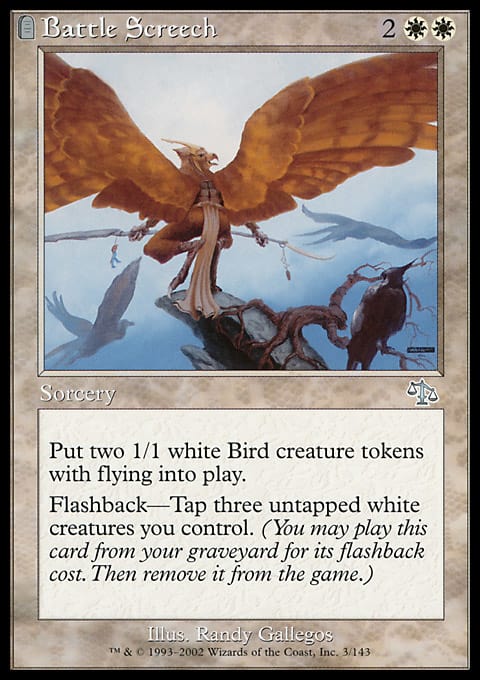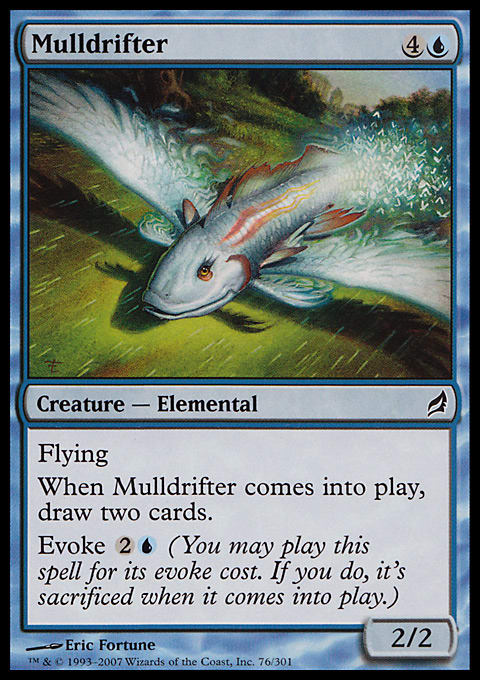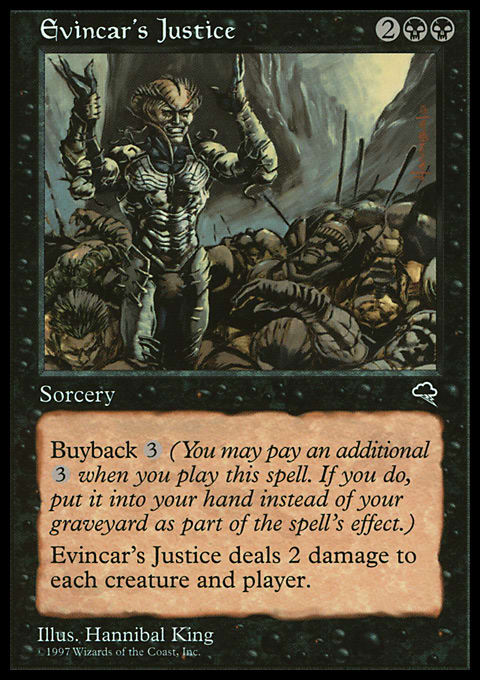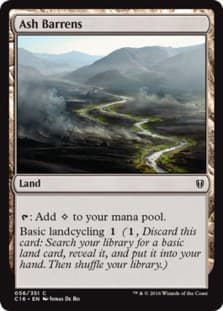Next week I will be bringing you a breakdown of the first two Pauper Challenges. The first Challenge has already provided a bounty of metagame data but it still represents a singular point of information. Waiting for the next Top 32 results will not only give us a better idea of the actual landscape of Pauper but also showcase how (and more importantly if) the metagame shifts as it does for other more established formats.
But that is next week. Today I want to talk about why you (yes you) should be playing Pauper.
For those unfamiliar, Pauper is a competitive format that utilizes only cards printed at common. Officially recognized on Magic Online, the official legality list matches the card set from the digital platform which means cards like Chainer's Edict, Battle Screech, and Beetleback Chief are all legal while High Tide, Goblin Grenade, and Hymn to Tourach are not. For a large format, the banned list is relatively small: Cloud of Faeries, Cloudpost, Cranial Plating, Empty the Warrens, Frantic Search, Grapeshot, Invigorate, Peregrine Drake, Temporal Fissure, and Treasure Cruise. That’s it. Load up the program and filter for commons and you have a bevy of options. This is perhaps the best selling point of Pauper — it’s accessibility.
Let’s be real for a moment: Magic is an expensive hobby. While there are many ways to play the game, it takes a serious investment of both time and money if one wants to compete at the highest level. Some people enjoy the competitive aspect of Magic but are limited in their ability to constantly afford the most important cards. Non-Rotating formats are great for these players as you can stick to an established deck that may be viable for years rather than months. Often times the amount of money required to keep up with these formats is a pittance compared to Standard. Pauper is a pittance on a pittance and once a player buys into the format a collection can be maintained for mere dollars from every new set. Again, while everyone’s budget for Magic is different and set by circumstances of that individual’s life, in the grand scheme of things Pauper requires far less financial investment than other competitive options, online or otherwise.
By virtue of this accessibility Pauper is a great stepping stone to wider competitive play. As discussed previously, Pauper has a wide variety of decks and viable strategies. Picking up a deck and grinding through leagues and other tournaments can be instructive into the nuances of playing against different archetypes. Pauper has control, aggro, combo, and midrange decks and understanding how to navigate a metagame is a skill that translates beyond Pauper. Combine this with the accessible nature of the format and it becomes far easier to learn a multitude of matchups and garner a deeper understanding of how different deck macros play off of each other. The ability to learn how to play different decks is not unique to Pauper but the low cost makes it easier to switch gears and start to acquire a different skill set.
Pauper is also a format the rewards playing in the margins of games. Back in Mirrodin era Standard, Arcbound Ravager was referred to as the Fairy Godmother due to its ability to wallpaper over bad play by being so obscenely powerful. While Pauper does have cards that can spackle over mistakes — Ancestral Mask, Fling, Galvanic Blast, Mulldrifter — even these only go so far. Pauper rewards tight play and planning ahead like all competitive forms of Magic. However I have found the margins in Pauper to be so razor thin and the Fairy Godmothers to be of such a low power level that playing optimally takes on even more weight.
Using a hypothetical aggro and control matchup for example, there is no reliable board wipe. Evincar's Justice comes close, but even that has limitations. What happens when the beatdown player has access to Hunger of the Howlpack for their 3 toughness creature? Did the control player hold back a Doom Blade or are they playing to the top of their deck for Chainer's Edict? Will any of this matter if the control player’s life total is low enough?
Pauper also removes Planeswalkers from the equation. Planeswalkers add a layer of complexity to any board and the ability to learn the ins and outs of Magic without having to understand whether or not it is correct to assail a life total or a permanent can be a boon. Once a player can understand what matters in a given archetype matchup then they can start to consider when it is right to attack a ‘Walker. Pauper provides an on ramp to more intricate and complicated forms of play.
Another hypothetical: the player with Nivix Cyclops has just cast Gush — how are you winning this game?
Despite there not being a ton of cards that can make up for mistakes, Pauper can be incredibly powerful. Cards that are not legal in other formats are allowed here as four-ofs. Ponder, Preordain, all six Artifact Lands, and even Gush are all fair game. More than that, for the most part these cards are all relatively fair in the format. An argument can be made that Ponder is a hair too good for Pauper but when the cards you are digging for are all of a similar power level it is less likely that Ponder is going to break anything. This is a Good Thing for people who like playing with powerful cards and strategies. You are just as likely to die to Fireblast as you are to Rancor as you are to the assembled Urza Tron in Pauper. Relying on commons does not make this any less Magic.
Once all these skills are put together and a player becomes proficient at Pauper there is a tangible upside. While grinding the Online League is not as profitable as other options going 3-2 or better can yield a moderate profit. Do this enough and you can build up a bankroll which can then be used to buy into another format. Pauper is the ultimate stepping stone for Magic Online, not just in skill but also in collection. Pauper can teach you how to play the game at a high level and prepare you financially to take the next step.
In the same way deck-building is rewarded. Pauper current has the best mana fixing in its entire history between the Khans of Tarkir Gain Lands, the original Ravnica Block Bouncelands, Terramorphic Expanse, Evolving Wilds, and newcomer Ash Barrens. Knowing how to correctly build your mana base is important and selecting the right cards for the job goes a long way toward victory. Again this is not a skill unique to Pauper but given the restrictions of a Pauper mana base assembling the proper configuration is no easy task.
Pauper is Magic with only commons. That is not only the allure but also the guiding principle of the format. To me this is what Pauper should be and it always frustrates me to see those who play the format obsess over what the format lacks. To be great Pauper does not need better mana or better sweepers. It does not need better removal spells or Planeswalkers. What Pauper needs to be great is simple: more players. Pauper needs more eyes and minds working to explore the format. Pauper needs more content creators to show off the format at a high level. Pauper can be so much more if it just had more.
Why should you play Pauper? You have to find your own reason. I got involved in the format because I wanted to exercise my Spike muscles without breaking my college student budget. I fell in love with the depth of the format but also the amount of unexplored space. I stayed enamored because I found a community of players who all wanted to strive to improve. I love Pauper for what it is but also what it can be in the wider world of our collective game. I cannot tell you why you should play my favorite format but I hope that I have given you a reason to give it a look.






























